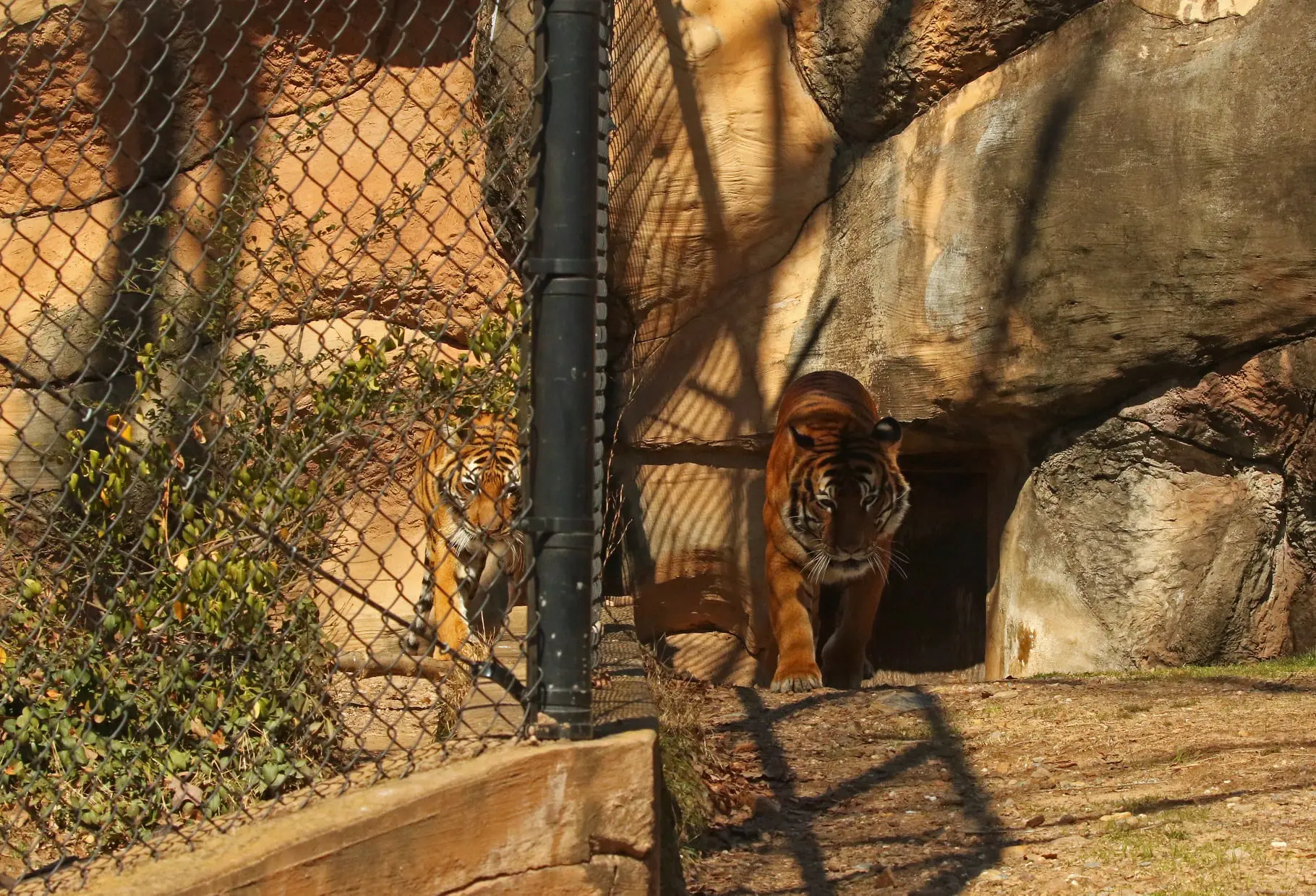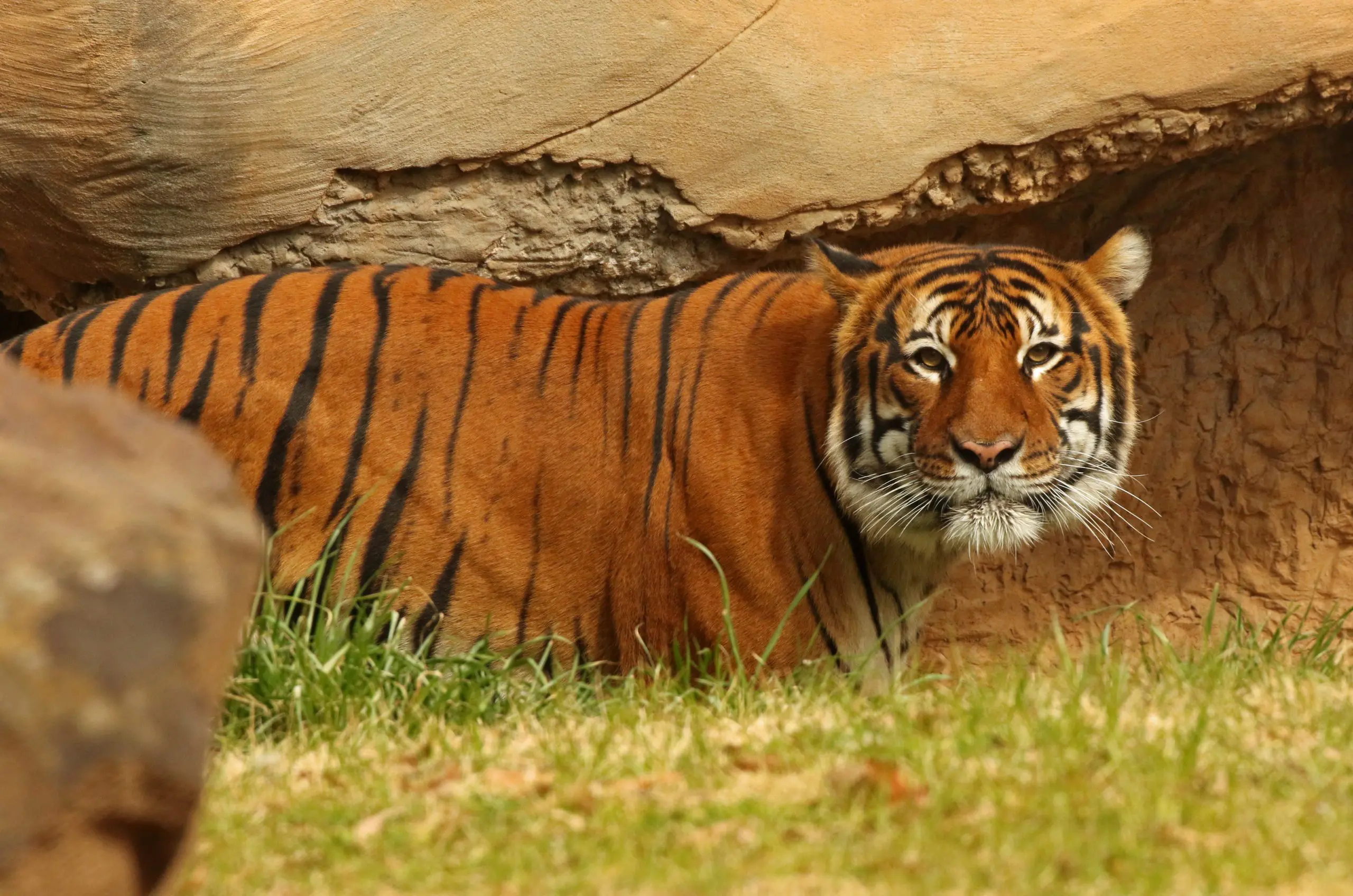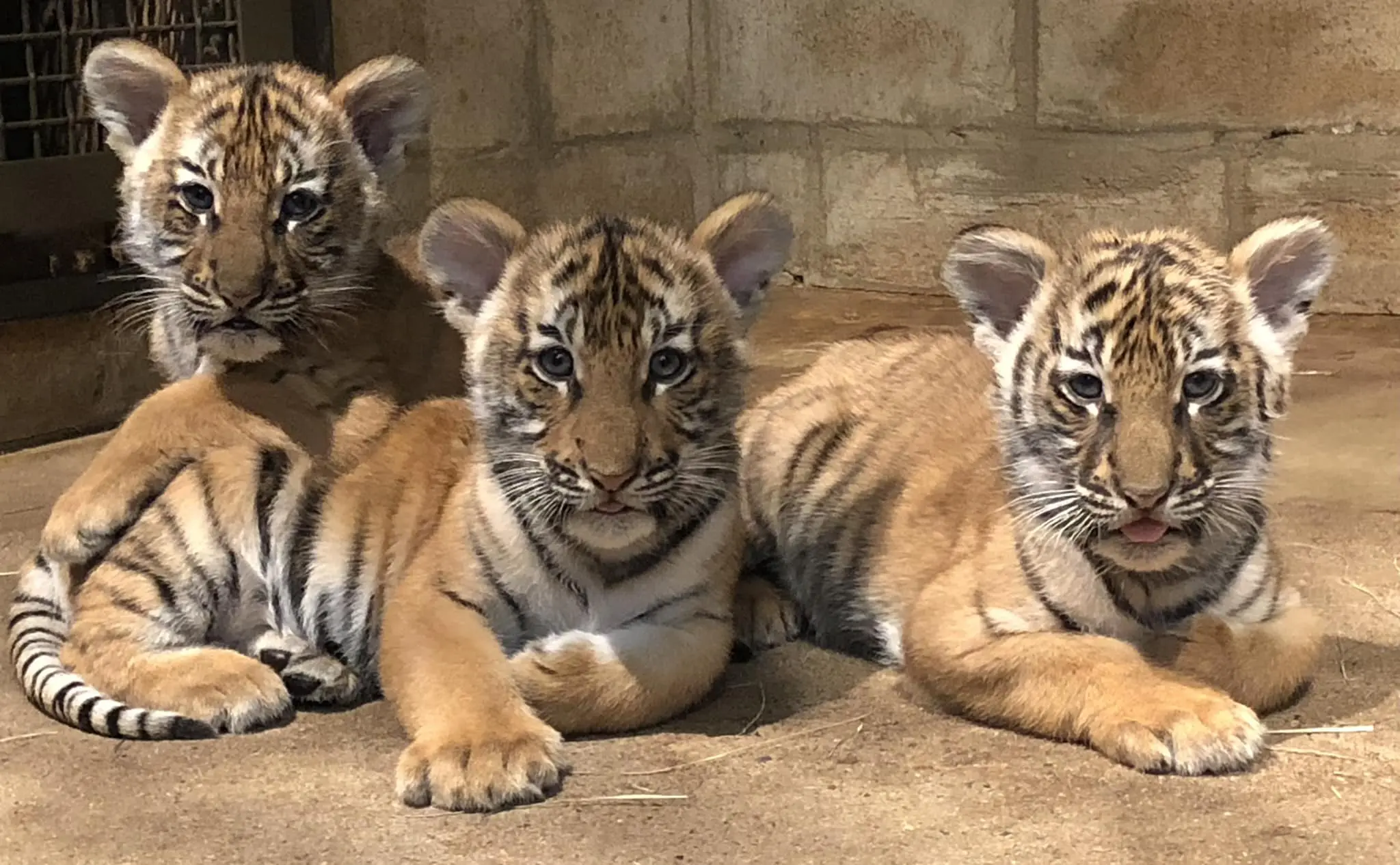By Kate Neal
LITTLE ROCK (September 29, 2025)— The Little Rock Zoo has been home to Malayan tigers for nearly 20 years. Over the years, the resident tigers have changed, but the Zoo’s commitment to this majestic species has not wavered.
Native to peninsular Malaysia, Malayan tigers are the second smallest subspecies of tiger. The Malayan tiger is listed as critically endangered by the IUCN. It is estimated that fewer than 250 remain in the wild with some estimates at below 120 mature adults. Threats to Malayan tigers include habitat fragmentation, habitat destruction, and poaching. The Little Rock Zoo annually contributes to the Tiger Conservation Campaign that supports critical conservation efforts working to save wild tigers.
As a member of the Association of Zoos and Aquariums (AZA) the Little Rock Zoo has participated in the Tiger Species Survival Plan (SSP) for over 30 years. The SSP manages tigers at all AZA accredited Zoos to maintain a healthy, genetically diverse and stable population for the future. The Little Rock Zoo’s commitment to Malayan tigers includes participating in transporting and breeding tigers based on the Tiger SSP’s recommendations.
Introducing and breeding tigers successfully takes a lot of careful planning as tigers are dangerous carnivores who can react aggressively when meeting new tigers. Tigers first become acquainted through a protective mesh barrier called a “howdy door” where the tigers can see and smell each other but cannot physically interact. Keeper staff monitor their behavior closely over several weeks while the tigers adjust and begin to show friendly behaviors.
When breeding tigers, it is best to introduce the pair while the female is coming into heat, or “estrus”. Keepers monitor the female for signs of estrus to determine when the best time to put the pair of tigers together. When the pair is put together, keeper staff watch the interaction and stand ready to attempt to separate the tigers if there is above normal aggression. Commonly, tigers will show some initial hesitation and aggression, but if all goes well the pair will relax and begin to breed. Tigers are induced ovulators, meaning they need to breed frequently during estrus in order for the female to ovulate and become pregnant. The average tiger gestation is between 100-110 days, and females give birth to a litter of typically 2-3 cubs.

Two litters of Malayan tiger cubs have been born at the Little Rock Zoo as a result of breeding recommendations from AZA Tiger SSP. The Little Rock Zoo was first recommended to breed Malayan tigers in 2013, with the first litter of four born in November of 2013. The three boys and their sister, Asmara, made for an active exhibit while growing up with their mom supervising their antics. Eventually the boys and their mother were transferred to other zoos, leaving Asmara and her father as Little Rock’s resident tigers.


In 2022, Jaya, an older male Malayan tiger, moved to Little Rock from the Jacksonville Zoo with the goal of breeding with Asmara. Jaya settled in quickly and the pair was introduced in the spring of 2022. Asmara gave birth to a litter of 3 females on August 13, 2022, who were later named Sundari, Zoya, and Kae.

To ensure the Malayan tiger SSP can continue their efforts to preserve the Malayan tiger population, the Little Rock Zoo is often asked to transport tigers to other zoos for breeding. In 2024, Asmara was recommended to move to Busch Gardens in Tampa, FL. Jaya was recommended to move to Sunset Zoo in Manhattan, KS for breeding. Zoya moved to the North Carolina Zoo in Asheboro, NC,- in the spring of 2025 in the hopes she will breed there in the future. Kae has been transferred to the Knoxville Zoo in TN as a recommendation of the tiger SSP and will be paired with a male there for breeding.


The Little Rock Zoo is proud to participate in this important conservation program and grateful to the Malayan Tiger SSP for their incredible efforts to save wild tigers, as well as to the City of Little Rock and the community for their ongoing support.
Though Zoya and Kae have moved on to the next chapter of their conservation journey, Sundari remains the resident tiger at the Little Rock Zoo. Don’t miss your chance to see her on your next visit!
Photos by James Syler, Karen Caster, and Carnivore Keepers.



